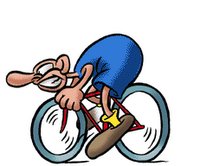“The treatment was a success; but the patient died”
The alternative for this person is to commence a heart-healthy diet like that which is typical of the Centenarians of Okinawa and to take additional “functional” foods to do what the prescription medicines do badly (over the long term). Some of the active ingredients of these foods may be refined and delivered in pill or capsule form to give extra punch.
For example; daily fish oil capsules with natural Vitamin E that thin the blood and keep the blood vessels clean and flexible; additional calcium and minerals like magnesium for the heart muscle and circulation; and Vitamin D in the form of cod liver oil on the days there is no exposure to sunlight.
The Vitamin D from sunlight will help guard against all manner of ailments, including heart failure. (Vitamin D deficiency reaches epidemic proportions among people over 50. Only about 5 percent of these men and 1 to 3 percent of the women get their RDI for this nutrient from diet alone). Our fictional person might take supplementary B group vitamins to help with energy levels, to help calm the nerves and contribute to a healthy heart. We might add a daily dollop of folate fortified Vegemite/Marmite yeast extract to give further protection to the heart and arteries.
In addition, there will be muscle toning exercise and cardiovascular exercise such as brisk walking. This exercise will include relaxation and breathing techniques that help keep blood pressure within healthy ranges. Morning Tai Chi in the park, if there is such a thing nearby, is a great way to deepen and slow the breathing – a natural and effective way to calm the blood pressure.
Side effects: increased energy and feelings of well-being among many; zest for life – hardly likely to warrant an international recall or million dollar law suits!
I recommend the Okinawa Food Pyramid that is well suited to New Zealand. This is particularly suited to our Polynesian and Asian people.
Approximately 70% of elderly in NZ institutional care have overt malnutrition. Up to 50% of young women in NZ may have low iron levels and most NZ women have insufficient dietary calcium intakes. The staple diet for teenagers now seems to be instant noodles which are devoid of any nutritional value – this at a stage of life when nutritional requirements are at a premium. You will see from my web site and E-Publications that that I advocate healthy eating first and foremost – then nutritional supplementation.
Unfortunately, by the time a person develops signs of nutrition-related health problems, such as being anaemic, arthritic, osteoporotic; pre-diabetic or with early signs of coronary heart disease; it can take years to complete a catch up - and reversal of a disease process by diet alone may be impossible. This very much applies to preventing mild wear of joints progressing to full-blown, disabling arthritis. Most people will follow the pharmaceutical and surgical tracks as first measures which is dismaying. It is the easy path that may deliver poor long term results for short term relief. I would much prefer they take a few carefully chosen supplementary food-based measures to bolster dietary changes, while reserving the drugs and surgical options when all else fails, or these non-invasive measures have run their natural course. You will see that the nutritional products on my web site are few, carefully selected, usually for a specific purpose, are from natural sources and each has good scientific validation. All are discounted to be as affordable as possible to my supporters.
Our hospitals are full, if not overwhelmed already with elective surgery being constantly postponed. And we have yet to feel the Tsunami that will accompany Baby-Boomers as they enter old age. Unless the need is urgent, each elective cardiovascular and orthopaedic surgery candidate should be assessed for placement on a positively aggressive three month lifestyle, therapeutic exercise and nutrition based intervention. My medical advisor, at the time I first submitted this as a proposal to Government health authorities commented that ¾ of all those currently on those elective surgical waiting lists would probably end up not needing the surgery or, at least, much less and recovery will be quicker and much more complete.
I resist the saturation promotion of sport by commercial performance enhancement products like caffeine, creatine, carbo gels and over-priced body building and recovery formulations. Some of these products may have a role, but not without careful consideration on a person-by-person basis. I promote products that improve health, that come from “natural” sources and for which there is good scientific evidence of their claimed effectiveness. Wherever I can, a natural food source is recommended and I seek ways people can make your own nutritious mixes for a fraction of the cost of commercial preparations. The Super Smoothie recipe is an example of this. I refer you my many E-Publications that include specific and general nutrition advice as an integral part of health promotion and athletic conditioning.
I detest our young athletes being given the impression that they can get performance gains out of a bottle.
The soaring rate of dementia in Westernised countries is alarming and threatens to overwhelm health and aged care services and exhaust families which also face financial ruin. We are following the US which is very scary and we must act now. The undeniable action, which we get from the study of people like the Okinawa Centenarians, is to stop the widespread drugging of our population; make positive changes to diet, including targeted supplementation; get people outdoors and active; and keep our elderly actively engaged in their families and communities – this is the purpose of this website and I appreciate your support.









